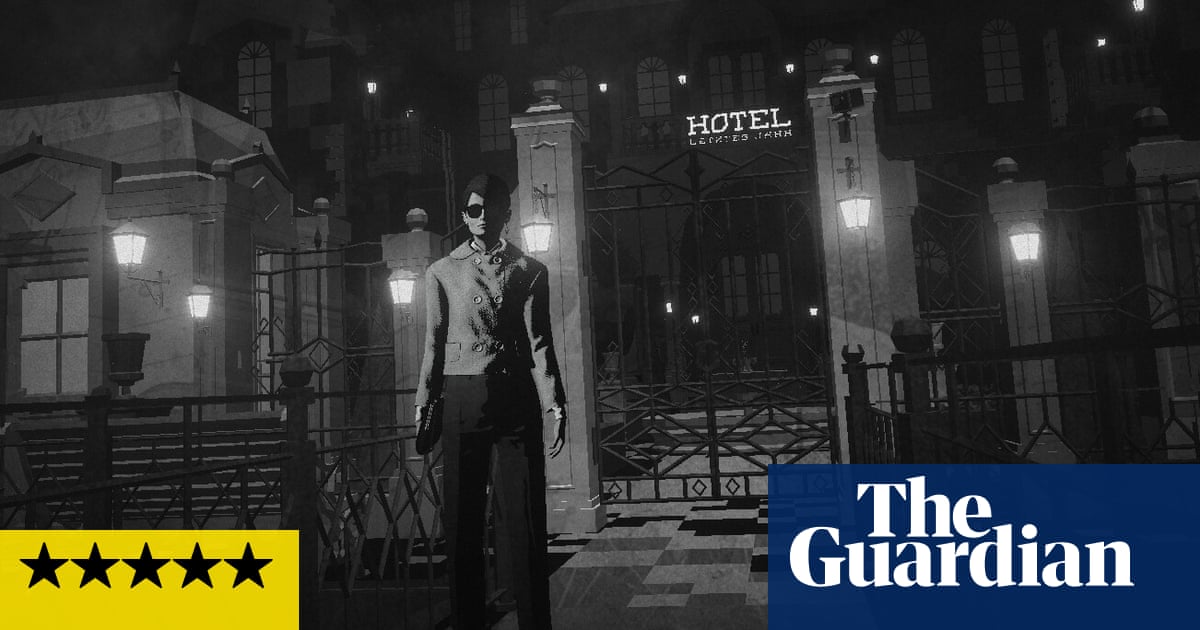It is both a pleasure and a relief to discover that while the titans of the mainstream games industry are tearing themselves apart in their unquenchable thirst for shareholder value, there are still smaller companies out there making brilliant, original games. This month, we’ve already seen Crow Country and Animal Well, and now here is the latest highly stylised puzzler from Swedish studio Simogo, previously responsible for eerily folkloric Year Walk and groundbreaking audio-textual adventure Device 6. It is, in short, one of the most compulsive mystery games I’ve played for years.
The set up for Lorelei and the Laser Eyes is classic adventure territory. A woman is invited to an abandoned hotel in Siracuse, Italy, by an eccentric artist who says he needs her support to complete an ambitious, perhaps even revolutionary project. But what is really going on in this labyrinthine building, and what has happened to the family that owned it for generations? The answers lie behind an array of locked door puzzles, the solutions hidden in odd movie posters, notes and strange phone calls. There are artefacts connected to an avant garde film director, a dadaist artist, a stage magician; there are secret rooms and hidden passages, and at the heart of it all is a time-spanning atavistic mystery told through multilayered narrative strands that the player must tease apart in a brilliantly non-linear fashion.
Confused? You will be. Combining the original Resident Evil with the excellent smartphone series The Room, Lorelei and the Laser Eyes is a vast puzzle box, with every room containing some clue or question to tantalise you with the promise of new revelations. Can’t solve one picture clue involving weird red paintings? Fine, try that locked safe you found in a different room or dark passage – try that statue clearly missing a key component. Answers require logic and memory, as well as a knowledge of roman numerals, zodiac signs and strobogrammatic numbers. It is obtuse, often bewildering stuff.
Beautifully matching the noirish feel of the story, with its sinister men and forlorn heiresses, are the expressionistic, almost monochrome visuals. Dizzying camera angles turn rooms into crooked fairground funhouse rides, shadows jut into each scene like daggers. It’s never clear what time period you’re in, although time is a major theme throughout – key dates in the family’s history crop up again and again, as history folds in on itself. All too often, any game that even hints at surrealism is written off as “Lynchian” but Lorelei has much more in common with Argento or Jodorowsky in its use of repeated symbols, uncanny threats and sickly, sensual aesthetics.
Right at the start, players are advised to grab a notebook and pen – and yes, you will need them. Instructions are kept to a minimum and though there are plenty of clues to gather and continually re-examine (every note, image or object you discover is stored in your character inventory so you can keep going back and checking them), the narrative and structure are both utterly oblique. One moment you’re analysing CCTV footage, the next you’re consulting a shadowy fortune teller; ghosts wander the halls, and at points, the fourth wall is smashed to spectacular effect. I filled pages of my notepad, and for the first time in many years, I entirely mapped out the environment by hand on the A3 graph paper I usually use to plan my own novels. It was such a pleasurable experience, to be allowed this responsibility by the developer. It took me back to the era of Scott Adams, Lucasilm and Sierra On-Line, when players were treated as co-authors (and co-cartographers) of the narrative experience; when you’d always have an inventory of seemingly useless objects, though all would at some point become necessary.
Lorelei and the Laser Eyes is a riveting puzzle game, which uses its eerie visuals and elusive story as an intrinsic element of the experience rather than a mere design affectation. It is a game that asks subtle questions about the nature of creativity and play, and later it takes a breathtakingly meta turn that will thrill those who remember Kojima’s tricks in the Metal Gear Solid series. It is also a meditation on the troubled relationship between art and commerce, and quite frankly, there could not be a more timely concern for a video game to explore.







